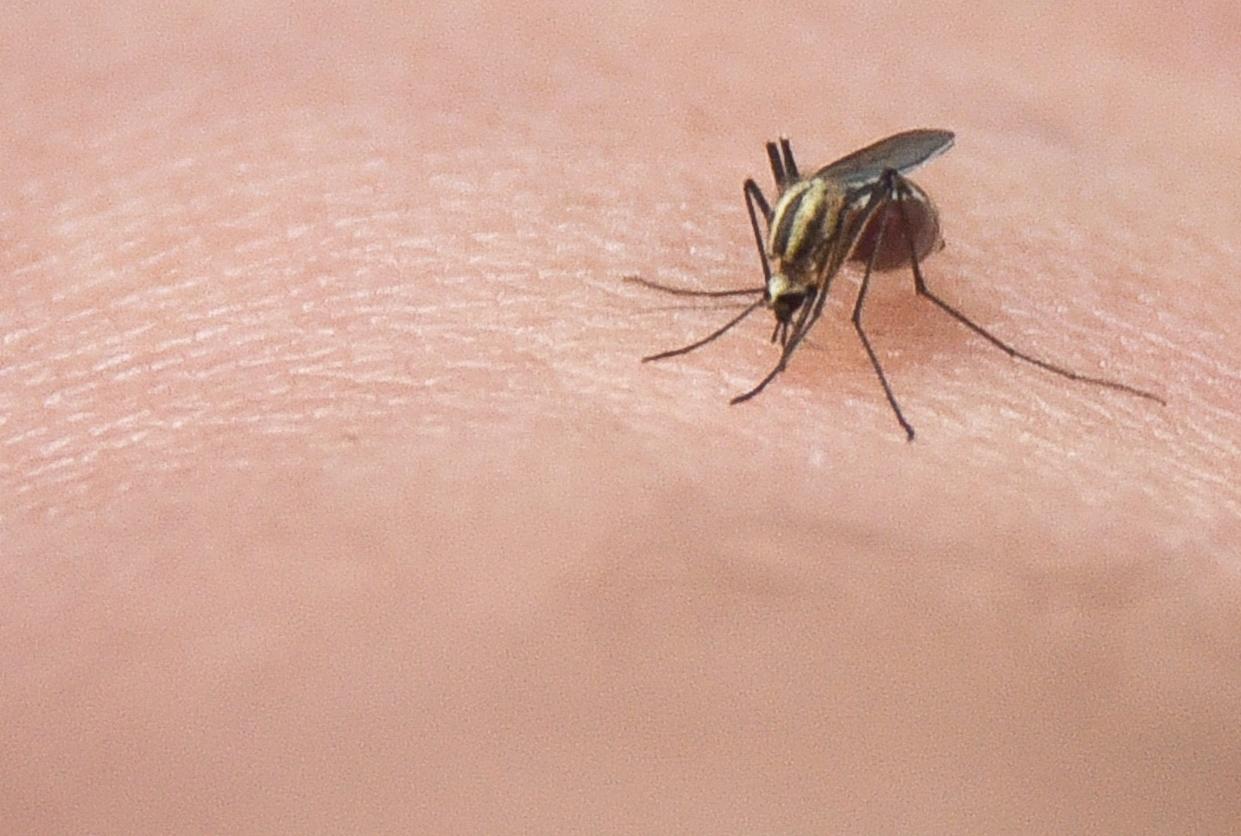Rideout: Here's how you can help control the mosquitoes in your yard
It's getting warmer out there, and rain is common in the spring, so it's time to look out for several species of mosquito in the Evansville/Tri-State area.
The container-breeding Asian Tiger Mosquito and the Eastern Treehole Mosquito are likely to see big increases, especially if temperatures remain warm. Although these mosquitoes are annoying, most people are concerned about are the Culex mosquito species which are known to be a primary vector of the West Nile Virus. The larvae and pupae of these mosquitoes are found in permanent or semi-permanent standing water.
In fact, all mosquitoes are dependent on water to complete their life-cycle. Adult mosquitoes lay eggs on the surface of water or in places where water is likely to accumulate. The eggs will then hatch to a larvae or “wiggler” stage. After several molts they will pupate and emerge from the water as an adult. The entire life-cycle is completed in about two weeks, or as little as 10 days during warmer weather.
Since mosquitoes require water to complete their life-cycle, water management is essential for control. You can make an effective and long-term effect on mosquito breeding sites by implementing one or more of the following:
Empty objects that have collected stormwater (i.e., tire swings, buckets, flower pots, trash cans)
Clear gutters and downspouts of debris so water can run properly
Clear debri from drainage ditches
Fill in holes left by uprooted trees or depressions in your lawn
Empty and wash birdbaths weekly
Fill, drain, or treat holes in trees
Remove old unused swimming pools
Stock garden and lily ponds with top-feeding minnows
Keep the margins of small ponds clear of vegetation
If standing water cannot be eliminated, it can be treated. Many mosquito larvicides are available and are safe to use in fish habitats. The most common product available to homeowners is Mosquito Dunks, a biodegradable, bactericide that kills mosquito larvae in the water.

But mosquitos are difficult to control
Because they are strong fliers and move easily between neighborhoods, adult mosquitoes are often difficult to control.
Creating a less than favorable environment by reducing unnecessary lighting (which attracts some mosquitoes), keeping weeds mowed and your lawn and shrubs neatly trimmed, keeping your home’s door and window screens intact, and using mosquito netting as screens around decks are a few options that may help.
Since mosquitoes will rest in tall grasses, shrubs and weeds, applying a residual spray such as carbaryl (Sevin) or malathion one to two days before the use of the area is effective for temporary control. Be sure to read the label before use.
You can also protect yourself from mosquito bites by wearing light-colored clothing and using repellents such as Deet. Deet is very effective but should be used carefully as severe allergies can develop. Concentrations higher than 20% should not be used on children.
There are a few mosquito-control strategies that unfortunately produce less than desirable results.
Electronic devices, such as those that mimic predator sounds show no significant effect on mosquito behavior.
“Bug zappers” do kill a lot of bugs, however many are beneficial insects and none are mosquitoes.
Purple martins are noted as being great insect-feeders; however research has shown that mosquitoes make up only a small portion of their diets. There is even a “mosquito repellent plant” which is advertised to repel mosquitoes because it produces an oil called citronella.
In high concentrations, citronella oil is repellent to mosquitoes, but there does not appear to be adequate scientific literature to substantiate the claim that enough citronella is released by a stationary plant to repel mosquitoes.
A little prevention goes a long way, but if you spend significant time outdoors, a bug spray often is necessary.
P. Andrew Rideout is the UK Extension Agent for Horticulture and can be reached at pandrewrideout@uky.edu.
This article originally appeared on Evansville Courier & Press: How can I get rid of moquitoes?
